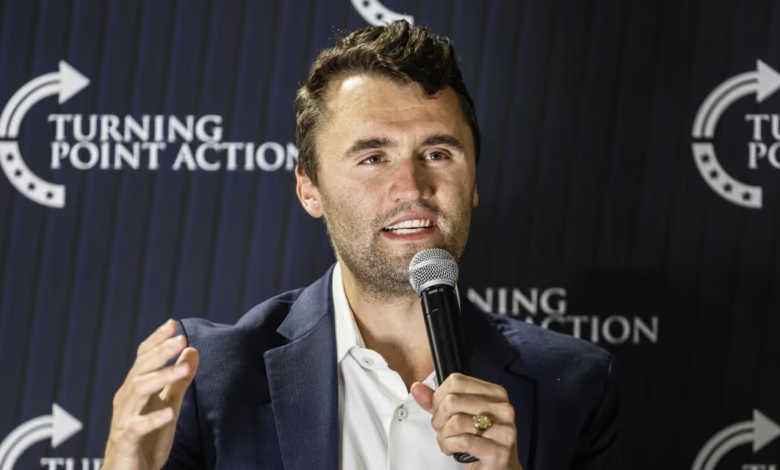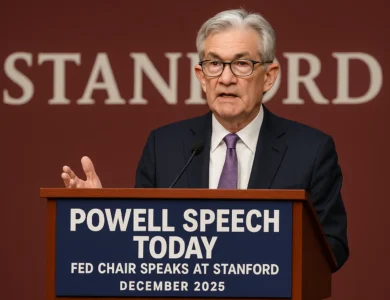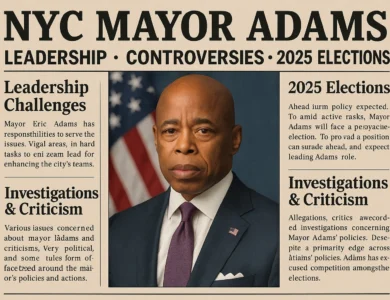
Charlie Kirk emerged as one of the most influential conservative activists of the 21st century, fundamentally transforming how young Americans engage with political activism. As the founder of Turning Point USA, Kirk built a conservative movement that reached millions of students across American campuses, making him a prominent conservative figure whose impact on American politics cannot be overstated.
Born on October 14, 1993, in Arlington Heights, Illinois, Charlie Kirk demonstrated an early passion for conservative politics that would eventually reshape the landscape of youth political engagement. His journey from a politically curious teenager to becoming the face of conservative youth movement represents one of the most remarkable success stories in modern political activism.
Kirk’s influence extended far beyond traditional political organizing. Through his media presence, public speaking engagements, and innovative approach to conservative messaging, he created a blueprint for reaching young Americans that other conservative organizations continue to emulate. His work demonstrated that conservative ideas could resonate powerfully with college students when presented through the right channels and with the right energy.
Early Life and Political Awakening
The Formative Years in Illinois
Charlie Kirk’s early life in Arlington Heights, Illinois, provided the foundation for his later conservative activism. Growing up in a middle-class family, Kirk was exposed to political discussions from an early age, developing a keen interest in American politics and conservative principles. His parents encouraged intellectual curiosity and critical thinking, traits that would serve him well in his future political career.
During his high school years at Wheeling High School, Kirk began to articulate his conservative viewpoints more clearly. He was particularly influenced by the writings of conservative thinkers and began to see education as a battleground for political ideas. This early recognition of education’s importance in shaping political beliefs would later become central to his organizational strategy.
The Decision to Forgo College
One of the most significant decisions in Charlie Kirk’s life was choosing to forgo traditional college education to pursue political activism full-time. This decision, made at age 18, demonstrated his commitment to conservative causes and his belief that real-world experience could be more valuable than formal education.
Kirk’s choice to skip college was strategic rather than anti-intellectual. He recognized that conservative voices were often marginalized on college campuses and decided to build an organization that could compete with liberal activism in the academic sphere. This decision would prove prescient as he developed insights into campus politics from an outsider’s perspective.
The Birth of Turning Point USA
Founding Vision and Mission
In 2012, at just 18 years old, Charlie Kirk co-founded Turning Point USA with Bill Montgomery, creating what would become one of America’s largest conservative student organizations. The organization’s mission was clear: to promote conservative principles on college campuses and counter what Kirk perceived as liberal bias in higher education.
Turning Point USA was designed to be different from traditional conservative organizations. Kirk envisioned an activist group that would be aggressive, media-savvy, and unafraid to challenge liberal orthodoxy directly. The organization’s approach combined grassroots organizing with sophisticated digital marketing and social media strategy.
Growth and Expansion Strategy
Under Charlie Kirk’s leadership, Turning Point USA experienced explosive growth. The organization’s expansion strategy focused on establishing chapters at colleges and universities across the United States, creating a network of conservative student activists who could promote conservative ideas on their respective campuses.
The organization’s growth was facilitated by Kirk’s ability to secure significant funding from conservative donors who believed in his vision. Major contributors included political philanthropists who saw Turning Point USA as an effective vehicle for advancing conservative causes among young Americans.
Kirk’s strategy also involved recruiting charismatic student leaders who could serve as ambassadors for conservative principles on their campuses. These campus representatives were trained in conservative messaging, debate techniques, and media relations, creating a professional network of young conservatives across the country.
Media Empire and Digital Strategy
Building a Conservative Media Presence
Charlie Kirk understood early that winning the political battle required mastering modern media platforms. His approach to conservative media was comprehensive, encompassing traditional radio broadcasting, podcast production, social media content, and live streaming events.
Kirk’s radio show, “The Charlie Kirk Show,” became one of the most popular conservative podcasts in America, reaching millions of listeners weekly. The show’s format combined political commentary, guest interviews, and call-in segments, creating an engaging platform for conservative discussion.
Social Media Mastery
Perhaps nowhere was Charlie Kirk’s media strategy more effective than on social media platforms. His Twitter account became a powerful tool for conservative messaging, often generating viral content that reached far beyond traditional conservative audiences. Kirk’s ability to craft compelling social media posts that captured complex political arguments in digestible formats made him a formidable digital communicator.
His Instagram and TikTok presence further expanded his reach, particularly among younger demographics that might not typically engage with conservative content. Kirk’s social media strategy demonstrated that conservative ideas could compete effectively in the digital marketplace when packaged appropriately.
Campus Activism and “Culture Wars”
The “Prove Me Wrong” Campaign
One of Charlie Kirk’s most successful initiatives was the “Prove Me Wrong” campaign, where he would set up tables on college campuses with signs challenging students to debate conservative positions. These events, often recorded and shared on social media, became viral sensations that showcased Kirk’s debating skills and ability to articulate conservative arguments under pressure.
The campaign was strategic in multiple ways. It positioned Kirk as confident in his conservative beliefs, demonstrated that conservative ideas could hold up under scrutiny, and provided endless content for social media distribution. The format also allowed Kirk to reach students who might never voluntarily attend a conservative event.
Confronting Campus Liberalism
Charlie Kirk made challenging liberal orthodoxy on college campuses a central part of his activism strategy. He argued that higher education had become dominated by liberal professors and administrators who created hostile environments for conservative students.
Through Turning Point USA, Kirk organized campaigns to expose what he termed liberal bias in academia. The organization created databases of liberal professors, published reports on campus censorship, and supported conservative students who faced discrimination for their political beliefs.
Political Influence and Relationships
Alliance with Donald Trump
Charlie Kirk’s relationship with Donald Trump became one of the defining aspects of his political career. Kirk was an early supporter of Trump’s 2016 presidential campaign and remained a loyal ally throughout Trump’s presidency and beyond. This relationship provided Kirk with access to the highest levels of Republican politics and enhanced his credibility within conservative circles.
The relationship was mutually beneficial, with Trump praising Kirk as “Great, and even Legendary” in recognition of his contributions to conservative causes. Kirk’s organization played a significant role in youth voter mobilization for Trump’s campaigns, demonstrating the practical political value of their alliance.
Republican Party Influence
Beyond his relationship with Trump, Charlie Kirk developed relationships with numerous Republican politicians and conservative leaders. His influence within the Republican Party grew as Turning Point USA demonstrated its ability to mobilize young voters and shape political discourse.
Kirk’s political influence was evidenced by his speaking appearances at major conservative conferences, his consultations with Republican campaigns, and his role in shaping conservative messaging strategies. His organization became a pipeline for conservative talent, with many Turning Point USA alumni going on to careers in Republican politics.
Controversies and Criticism
Campus Conflicts
Charlie Kirk’s campus activism inevitably generated controversy and criticism from liberal academics and student activists. His events often drew protests, and his presence on college campuses frequently resulted in heated confrontations that generated significant media attention.
Critics argued that Kirk’s approach was designed more to generate media coverage than to promote genuine intellectual dialogue. They contended that his “Prove Me Wrong” events were publicity stunts that oversimplified complex political issues and created adversarial rather than educational interactions.
Political Positioning
Kirk faced criticism from multiple directions regarding his political positions. Liberal critics viewed him as a divisive figure who promoted harmful conservative policies, while some traditional conservatives questioned his populist approach and his alignment with Trump’s more controversial positions.
His advocacy for certain conservative positions on issues like immigration, climate change, and social issues generated significant debate and criticism from political opponents who argued that his positions were extreme or harmful to certain communities.
Legacy and Impact on Conservative Movement
Transformation of Conservative Youth Activism
Charlie Kirk’s most significant contribution to the conservative movement was his transformation of how conservative organizations engage with young people. His model of combining grassroots activism with professional media production and social media strategy became the template for successful conservative youth organizing.
Turning Point USA’s success demonstrated that conservative ideas could compete effectively for young people’s attention when presented through modern communication methods and backed by professional organizational structure. Kirk’s approach influenced numerous other conservative organizations to adopt similar strategies.
Media Innovation in Conservative Politics
Kirk’s media strategy represented a significant innovation in conservative communications. His ability to create viral content, build large social media audiences, and maintain constant engagement with his followers showed other conservative leaders the potential of digital media for political organizing.
His success in building a media empire around his personal brand demonstrated that individual conservative activists could achieve significant influence through media entrepreneurship, inspiring a generation of conservative media personalities to follow similar paths.
Educational Impact
Through Turning Point USA, Charlie Kirk created educational resources and programs that reached hundreds of thousands of students. The organization’s educational initiatives included leadership training, political education workshops, and internship programs that prepared young people for careers in conservative politics and media.
These educational efforts had lasting impact, creating a network of trained conservative activists who continued to promote conservative principles in their communities and careers long after their direct involvement with Turning Point USA ended.
The Digital Age Conservative
Adapting Conservative Messaging for New Generations
Charlie Kirk recognized that reaching young Americans required adapting conservative messaging for digital platforms and contemporary communication styles. His success in making conservative ideas accessible and engaging for social media audiences demonstrated the importance of message adaptation in political communications.
Kirk’s ability to translate complex conservative principles into shareable content helped bridge the gap between traditional conservative philosophy and modern digital culture. This skill made him particularly effective at reaching young people who might otherwise never engage with conservative ideas.
Building Conservative Community Online
Through his various digital platforms, Kirk created online communities where conservative young people could connect, share ideas, and support each other. These digital communities provided social reinforcement for conservative beliefs and helped combat the isolation that many conservative students felt on liberal college campuses.
The online communities Kirk built around his media platforms demonstrated the potential for digital spaces to serve important social and political functions, providing both information distribution and community building for conservative audiences.
Conclusion
Charlie Kirk represented a new generation of conservative leaders who understood that effective political activism in the modern era required mastering digital communications, building professional organizations, and engaging directly with young audiences. His creation of Turning Point USA and his media empire demonstrated that conservative ideas could compete successfully for young people’s attention when presented through the right channels and with sufficient energy and resources.
Kirk’s approach to conservative activism influenced an entire generation of political organizers and media personalities. His emphasis on campus engagement, digital strategy, and youth mobilization became standard practices for conservative organizations seeking to build influence among young Americans.
His legacy lies not just in the specific political victories he achieved, but in the model he created for effective conservative organizing in the 21st century. Charlie Kirk showed that conservative movements could be both principled and popular, both intellectually serious and media-savvy, both traditional in their values and innovative in their methods.
The impact of his work will likely be felt for decades as the young people he influenced and trained continue to shape American politics and conservative movement in ways that reflect the lessons they learned from his example.
Read More: Buffalo Bills All the Latest Team News & Info






